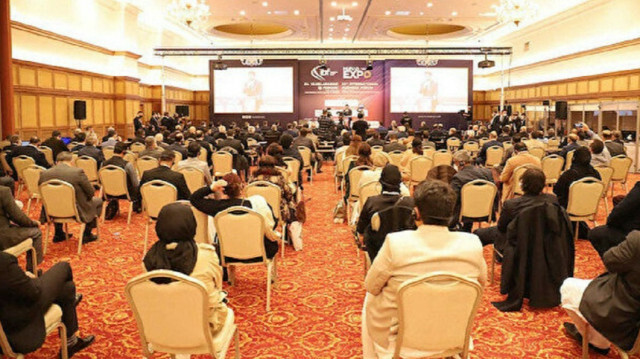
Oman is committed to food security and all steps are being taken to ensure availability of food at affordable prices – MUSCAT — The Sultanate has attached great importance to food security and had set up a national committee for food security, besides developing strategies to ensure self-sufficiency and adequate availability of food.
At the second ‘Ramadhan Evening’ organised by the Oman Chamber of Commerce and Industry (OCCI) on Saturday night, Dr Fuad bin Jaafar Sajwani, Minister of Agriculture and Fisheries, said that food security is one of the main challenges facing the world and communities all over the world due to population growth and demographic and climate changes which have great effect on agricultural production.
He noted that as per estimates food prices will continue rising by 10 per cent in the coming 10 years. The minister attributed the rise in fish prices and meagre supplies in the local market to low summer catch (by 45 per cent). Production in June was 9,000 tonnes, less than the average monthly production in 2010 of 14,000 tonnes.
He pointed out that the Sultanate’s fish production in 2010 amounted to 164,000 tonnes worth RO 118 million and the contribution of the sector to the GDP was 0.5 per cent, excluding allied fishing activities. He said that the government interfered to control price hike by introducing regulations, such as ban on exporting five types of fish, which will expire next month.
“The ban may include two other types to ensure enough supplies in the market. The ministry has full control on the banned fish,” he added.
He said the challenges facing the fish sector in the Sultanate are poor marketing and lack of proper places for marketing and selling fish. This has forced traders to export fish to neighbouring markets. The ministry has sought to build new markets, renovate old ones and set up a national company to buy fish from fishermen in different parts of the Sultanate.
A consultancy company has been appointed to study fish landing places to help the ministry in taking measures to serve this sector.
As for subsidy, he pointed out that the ministry has reviewed the rules of support and expanded them to include all stages of fish production. “The Oman Development Bank (ODB) loans to agriculture, fisheries and livestock sector constitutes 79 per cent of the total subsidy provided by the bank to different economic sectors,” he added.
As for the insurance of fishing vessels, he said that the ministry, in co-operation with an international organisation and in co-ordination with OCCI, has reached an agreement on insurance terms that should be incorporated in the insurance policy. He also called on insurance companies to support the fish production sector.
On marketing, he pointed out that the ministry in co-ordination with Muscat Municipality is setting up a central fish market, which will attract fish from different parts of the Sultanate. The project will be completed soon and similar markets will be set up in different governorates and regions.
The current five-year plan includes fishing ports in Rakhyut, Taqah, Sadah, Al Shuwaimiyah, Mahout, Duqm, Barka, Al Musanaa and Liwa, besides renovation and expansion of a number of existing ports.
For fish farms, the minister said that there would be investment projects to be announced in the beginning of December during an international seminar. Incentives and facilities will be given to those who are willing to invest in this sector, with much scope for expansion.
Dr Sajwani hoped that the Sultanate would gradually move towards modern agriculture methods within the next 20 years replacing the traditional methods the output of which is modest, besides the consumption of double quantities of water.
The OCCI meeting also discussed a national strategy for agriculture and livestock development, encouraging commercial centres to buy Omani products, participation of farmers in government delegations and exhibitions abroad, setting up more agricultural societies across the Sultanate and role of the ministry in monitoring livestock imports to limit outbreak of diseases. Dr Sajwani underlined the importance of the private sector in attaining the ministry’s goals. — ONA



